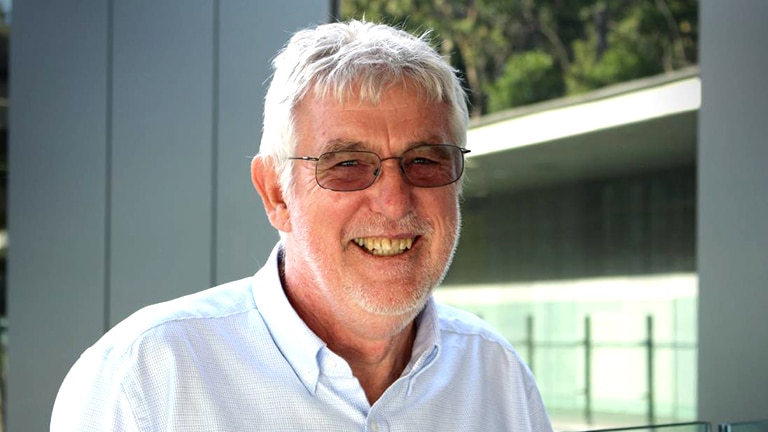
A federal funding boost of almost $500,000 is set to combat the rates of depression and anxiety among elderly Australians.

A funding boost of almost $500,000 from the National Health and Medical Research Council (NHMRC), is set to combat the rates of depression and anxiety among elderly Australians.
Led by Laureate Professor Rob Sanson-Fisher, the Targeted Call for Research will incorporate a randomised controlled trial of an online peer support intervention aimed at reducing symptoms of depression among older adults living in rural Australia.
Laureate Professor Sanson-Fisher said the funding would enable the development of a web-based platform to provide accessible, sustainable and feasible solutions to support older people in remaining socially connected.
“Social connectivity is crucial to maintaining mental health, however, peer relationships with others who are experiencing similar life situations reduce in older age.
“Those living in rural areas are disproportionately affected, but web-based technology is a promising way to ensure older people have tools to combat feelings of isolation and symptoms of depression,” he explained.
Older adults living in rural Australia will be recruited via regional aged care service provider integratedliving Australia and randomised to either an intervention or control group.
Participants in the intervention group will receive access to an online community dedicated to older adults, where they can engage in one-on-one and group-based communication with other participants, as well as receive one-on-one training and ongoing support whilst utilising the intervention.
Outcome data will be collected from participants through questionnaires at the beginning of the process, with follow up data collection at three, six and 12 months into their use, in order to ascertain the success of the intervention.
“This study will provide currently lacking high-level causal evidence about the effectiveness of online peer support in promoting the mental health and wellbeing of older people.
“The use of information and communication technology also ensures that, if effective, the intervention can be rapidly scaled-up and integrated within the suite of services provided by aged care, mental health and community services,” Laureate Professor Sanson-Fisher said.
University of Newcastle Senior Deputy Vice-Chancellor (Research & Innovation), Professor Kevin Hall, said the significant success was clear demonstration of Laureate Professor Sanson-Fisher’s world-leading work in aged health care.
“Research into the care and support of elderly communities in rural areas is of paramount importance both locally and globally, especially as Australia continues to move towards an ageing population.
“I sincerely congratulate the research team on this funding success – a wonderful achievement for the region and great recognition of the world-class work being conducted in this field,” Professor Hall said.
* Laureate Professor Rob Sanson-Fisher is Director of the University of Newcastle’s Health Behaviour Research Collaborative. The study involves collaboration with the regional aged care service provider integratedliving Australia; University of Newcastle researchers Dr Allison Boyes, Professor Sally Chan, Dr Lisa Mackenzie, Associate Professor Frans Henskens; and Hunter Medical Research Institute researchers Dr Alix Hall and Mr Simon Deeming. HMRI is a partnership between the University of Newcastle, Hunter New England Health and the community.
HMRI would like to acknowledge the Traditional Custodians of the land on which we work and live, the Awabakal and Worimi peoples, and pay our respects to Elders past and present. We recognise and respect their cultural heritage and beliefs and their continued connection to their land.

Hunter Medical Research Institute
We’re taking healthy further.
Locked Bag 1000
New Lambton
NSW, Australia, 2305



This site is protected by reCAPTCHA and the Google Privacy Policy and Terms of Service apply.
Copyright © 2024 Hunter Medical Research Institute | ABN: 27 081 436 919
Site by Marlin Communications
